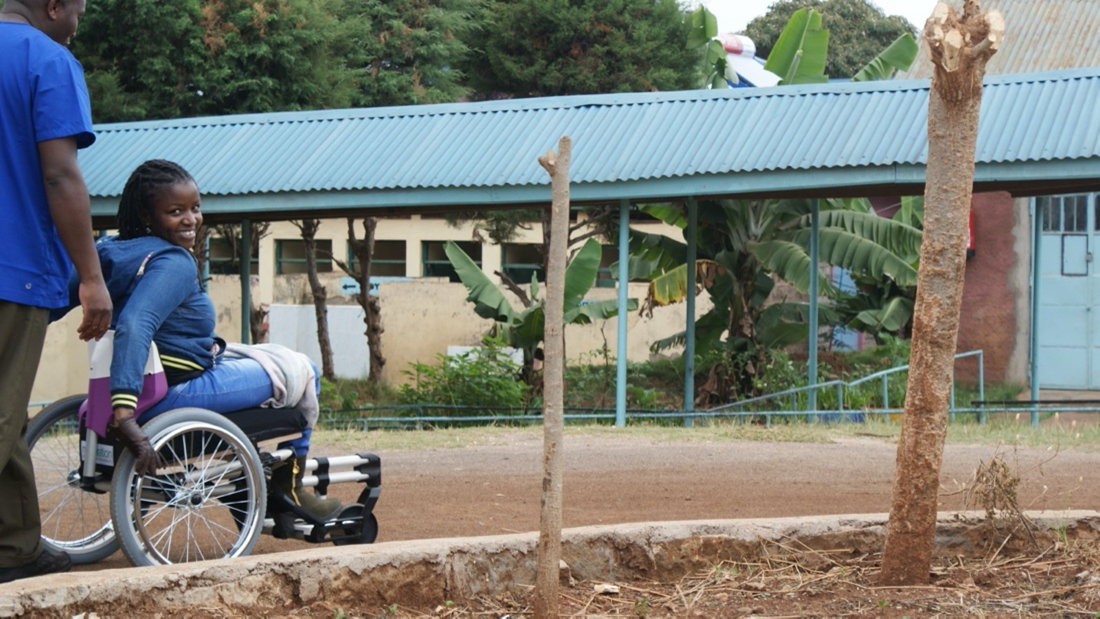Case Study: Motivation InnovATe Wheelchairs, Reimagining Bespoke Wheelchair Manufacturing Through Technology
Jake Honeywill & Nancy Mbugua
Motivation InnovATe [272] is a trial model for locally producing made-to-measure wheelchairs that are fully customizable to the needs and preference of each user. The process starts with a wheelchair assessment; a trained clinician works with the user to establish their requirements and priorities, and to obtain accurate body measurements. This data will directly inform the design of the wheelchair; it is fed into a parametric Computer Aided Design (CAD) model which automatically generates a bespoke wheelchair design that provides the optimum fit for the user. The wheelchair is then fabricated using a combination of unique3D printed parts and metal tubing cut to length enabling localized production of consistent high-quality. The InnovATe model has been developed by Motivation UK and tested with local users and clinicians in Kenya as part of the AT2030 programme.
The problem:
In Kenya there are more than 500,000 individuals with physical disabilities, many of whom need access to appropriate wheelchairs. Current wheelchair provision models rely on donor-funded projects, donation of imported chairs by philanthropic organisations and charities, or small-scale local production. These models are unsustainable, with time-limited funding, costly importation that is susceptible to disruption, and wheelchairs that are often inappropriate for their intended user – the wrong size, with product features which do not match their environment or lifestyle. At the same time, local manufacturing struggles to produce wheelchairs of consistent quality and quantity. The gaps in these production models, alongside gaps in wheelchair services, result in wheelchair users lacking access to the AT they have a right to, which impacts on their independence, health and inclusion in society.
Value & Usefulness, Co-Created Solutions:
The Motivation InnovATe model leverages technology to address manufacturing issues, and promotes a de-centralised approach to wheelchair development that shifts the ownership of the wheelchair design and production process directly into the hands of the user and the local clinical and technical team. Throughout our trial we observed how the deep collaboration required between all parties involved at every step, from assessment and design to production and fitting enabled not just users, but also clinicians and technicians to feel empowered. In particular, users felt, often for the first time, in charge of the process that leads to the production of wheelchairs that match not only their physical needs, but also their personal identities [34].
Open and Scalable:
The hybrid manufacturing process of the Motivation InnovATe wheelchairs that combines digital technologies such as CAD and 3D printing with traditional assembly, allows for great flexibility, creating a model that can scale across context with different requirements and resources. Materials and components used to assemble the wheelchairs can be changed according to what is available in the country. Similarly, the design of the wheelchairs can be adapted according to the different characteristics of the environment. This flexible approach has great application potential for the development of other assistive devices such as crutches, walking frames, and postural devices components enabling the creation of a library of customizable assistive devices that could be manufactured leveraging the same materials and equipment supporting scalability across different products.

Figure 3.7: Participant involved in the motivation innovate trial in Kenya is testing her be-spoke wheelchair (picture by Motivation).
Excerpted from Disability Interactions: Creating Inclusive Innovations by Catherine Holloway and Giulia Barbareschi, https://doi.org/10.1007/978-3-031-03759-7, pages 48–50.